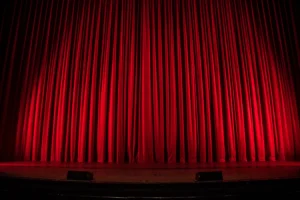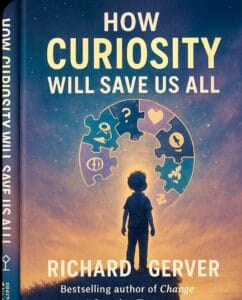Earlier this month, I attended a round table to explore how the arts could and should be celebrated properly in education. There was an eclectic and fascinating mix of people involved. From artistic directors of some of our grandest arts organisations, school leaders, policy makers and leaders of industry, to film stars, music legends and even royalty in the shape of HRH The Prince of Wales. As well as being an opportunity for me to again pinch myself and star gaze, I found it a challenging but hugely constructive morning.

I left feeling more passionate than ever that the arts truly matter. Not only because the creative industries form a major part of our economy or that young people should have a right to access the opportunities and experiences the arts offer but because the skills the arts promote are so important for modern citizens. The ability to collaborate, to take risks, to communicate and empathise, to express yourself and to push experiences and emotions can all be learnt from the arts.
For too long, we have compartmentalised skills and knowledge; the sciences, the arts, the humanities etc. but really, they are all connected and actually work together to create rounded human beings. The polarisation has led to many misunderstandings and frustrations.
Barry Barrish, the 2017 Nobel Prize winning physicist told me recently that he wanted people in his research team to have far broader interests than just physics. In fact, he actively recruited people with some interest in the arts. Why? Because he felt the arts helped people to think creatively, to be curious and to ask interesting questions.
Ian Livingstone, the founder of Games Workshop and one of the geniuses behind Tomb Raider is passionate about the arts and their place in people’s experience and development. He is always looking for well-rounded people to employ in order to drive his business forward.
Steve Wozniak often talks about the fact that Apple would never have happened through just his technical know-how, it required the creative genius that was Steve Jobs and ultimately the design flair of Jony Ive.
A lot of the challenges facing organisations I work with are essentially human and the behaviours and attributes required to overcome them can be found in the skills developed from participating and experiencing the arts.
In August, I had the incredible privilege of visiting a school on the outskirts of Perth in Western Australia and saw the profound impact on the students by knitting the sciences and arts together. Some of the technological and engineering flair being shown was breathtaking, and this in a community facing highly challenging social conditions.
My thought for this month is that we cannot pigeon hole people or silo teams anymore; we cannot create artificial barriers or divides. The world needs multidisciplinary people, capable of adapting, collaborating, communicating and challenging the status quo. We need the arts and we need them to merge with other incredible areas in life that define us as human beings.
As with so many issues in society today, we need to work harder to understand what binds us rather than what separates us.



